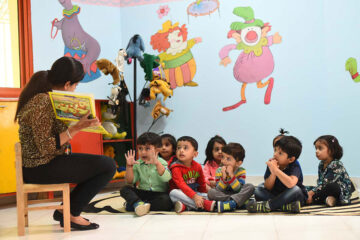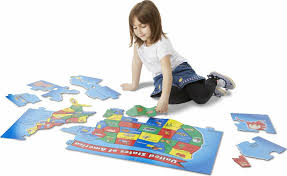
Nowadays, parents use technology’s comfort to put their kids to sleep. Let’s be honest about it. Kids might quickly nod off after viewing a video or one of their favorite cartoons. These activities can be thought of as innocent joys of childhood. Still, for our children, nothing beats the beauty of storytelling. How much time do you spend reading aloud to your kids as a parent?
The full development of your preschooler is greatly influenced by storytelling. Storytelling has many benefits for kids, whether as easy as chatting about your upbringing or delivering a humorous daytime tale.
See this list to discover the advantages of storytelling for children.
- Cultivates qualities in your child
Little ones like listening to stories. When you give children enough time to engage in storytelling, you teach them values they may keep with them as they age. Tell children morally ambiguous tales or tales with lessons they can learn from the characters. Spending the time to do this teaches kids important classes and aids in learning kindness, discernment, honesty, compassion, and other concepts.
- improves their listening abilities
It’s not always simple to keep a kid’s interest for very long. It can be challenging for many children to focus for long periods. Either they jump in and start chatting more, or their thoughts begin to stray. However, sharing a tale with your child might help them get better at listening. They will learn to sharpen their concentration on a particular subject and become more attentive.
- Stimulates the imagination.
Children can visualize the characters, the narrative, the environment, etc. when they hear a tale. Compared to seeing anything on a screen, it is really different. As history develops, storytelling allows kids to let their imaginations run wild. They are free to envision the tale whatever they choose in their minds. They may even become more creative and receptive to new ideas.
- Increases their cultural understanding
Young children are exposed to new things through storytelling, including countries, cultures, and traditions. It helps children put themselves in the characters’ shoes, increasing their empathy as they try to understand their actions.
- Enhances their communication skills
Children’s capacity for expression can be improved by reading and telling them tales. It encourages kids to express their ideas, emotions, and thoughts through words. Please encourage your child to ask questions and share their opinions when you are sharing stories. Your child’s vocabulary will grow as they learn new words as you continue to engage in storytelling activities with them.
- Assist in memory acuity
Telling stories to your child is a great technique to improve their memory. You can revisit the material after you tell them a story or quiz them on specific points. See how much of the material they have retained by asking them questions.
- facilitates learning
A stepping stone for future academic learning is reading aloud to your child. It’s an effective technique to get kids ready for school since it makes learning simple and easy. As was already noted, storytelling helps kids focus and concentrate more, which is crucial as they start going to school.
- enhances social abilities
Through storytelling, children learn to pay attention and actively listen to the speaker. As they listen to others and talk, they develop more patience. Additionally, it helps them see how different everyone’s viewpoints are and opens their eyes to other people’s perspectives.
Young children may learn much about the world and life via storytelling. It offers them several chances to discover fascinating concepts and stuff they had never heard of. Given these advantages, parents have every incentive to spend enough time sharing tales with their children.
- Develops an emotional quotient and empathy:
Stories may help you become more conscious, but they can also help you become more emotionally intelligent and in charge of your emotions. Through storytelling, your youngster can learn to be more considerate of others’ needs and their own. Children intuitively know how to think for others while listening and understanding. Being compassionate and connecting to others makes one a better person. Therefore, use this aspect of a child’s psychology to assist them in developing their emotional intelligence and comprehending how their actions influence others.
- Encourages active participation in challenging situations:
Children frequently become confused as a result of difficult circumstances. Tell tales about diverse characters that encounter adversity. This idea will undoubtedly prepare students to assess specific answers in challenging future scenarios.
















